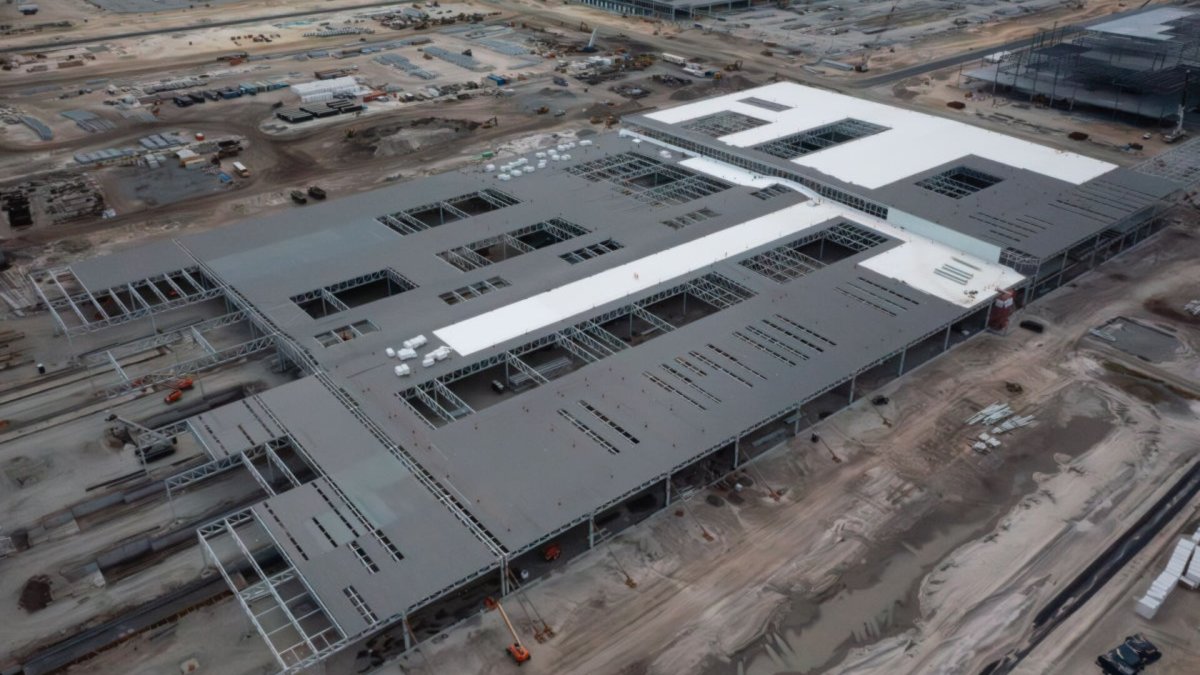The auto industry is under a microscope thanks to the 25% universal tariffs that President Donald Trump imposed earlier this year.
Since then, the President has negotiated side deals with a handful of countries, including the U.K., Japan, and the EU, that lowered those auto tariffs to more palatable levels.
The stated reason for the tax on imports was to boost U.S. manufacturing, but shifting manufacturing across country lines is a costly, multi-year process.
However, investing in the U.S. is a safe bet, and many companies, including Hyundai Motor Co., have already committed to investing billions in America.
In March, Hyundai Executive Chair Euisun Chung invited Georgia Governor Brian Kemp to the ribbon-cutting of its new $7.6 billion electric vehicle campus.
The investment expanded the sprawling facility, where the South Korean automaker expects to increase production capacity by two-thirds to 500,000 vehicles per year.
The 2,900-acre “megasite” has been in the works since May 2022. Georgia and local governments agreed to give Hyundai as much as $2.1 billion in tax breaks and other incentives to build the facility in the state.
Related: Japanese automakers are close to a crucial breakthrough
As part of the deal, Hyundai agreed to invest $7.6 billion in the plant and hire 8,500 workers by the end of 2031.
While the facility builds the 2025 Hyundai IONIQ 5 and 2026 IONIQ 9 EVs, the campus also features numerous manufacturing partners.
On Friday, the U.S. Department of Justice targeted the LG Battery Joint Venture plant on the site in a coordinated campaign that involved months of investigation and a combination of local and federal law enforcement.

ICE executes massive sweep at Hyundai megaplant
On Thursday, the Department of Homeland Security led a takedown at the Hyundai megaplant in Ellabell, Georgia, arresting 475 workers, most of whom were South Korean.
“The DOJ’s mission is to reduce illegal employment and prevent employers from gaining an unfair advantage by hiring illegal workers and exploiting those workers,” the agency said at a press conference announcing the enforcement action.
DHS partnered with Immigration and Customs Enforcement, the FBI, and other local and federal law enforcement agencies to conduct its largest single-site enforcement operation.
Related: General Motors has an unlikely ally in race against China
“This operation was about safeguarding the integrity of the economy and preventing the exploitation of workers,” Steven Schrank, special agent in charge of Homeland Security Investigations in Atlanta, said.
“This was not an immigration operation where agents went into the premises, rounded up folks, and put them on buses.”
The DHS executed the judicial search warrant as part of an “ongoing criminal investigation” into the company’s employment practices.
While a spokesperson for LG Energy Solution said that the South Korean company is cooperating with the investigation and has paused work, the South Korean government doesn’t seem as accommodating.
“The economic activities of our companies investing in the United States and the interests of our citizens must not be unduly violated during the course of U.S. law enforcement,” a spokesperson from South Korea’s Foreign Ministry said.
The country said it “conveyed its concerns and regrets to the U.S. embassy today, urging special attention to ensure the legitimate rights and interests of citizens are not violated.”
Hyundai facility’s Korean employees detained
The HLGA battery company construction site, located on the Hyundai plant in Ellabell, Georgia, is a joint venture between LG Energy Solution and Hyundai.
Some of the workers at the facility crossed the border illegally from Mexico, while others had overstayed their visas or violated their non-work visas, according to Shrank.
More automotive news:
- Defense accuses Ford of retaliation in messy RICO lawsuit
- Tesla’s biggest strength has suddenly become a liability
- Car buyers beware, the market appears to be shifting gears
The majority of the detainees were Korean. According to Shrank, the facility’s employees work for various contractors and subcontractors, and DHS continues investigating the facility.
The detainees were taken to the Folkston ICE Detention to be processed.
LG Energy Solution raid comes at a terrible time.
Right before Thursday’s raid, LGES just signed its most important deal of the year.
The South Korean company signed a $10.7 billion deal with Mercedes-Benz AG to build EV batteries for the company in Europe and the U.S.
Under the agreement, LGES will supply the German automaker with 107 gigawatt-hours of batteries, or enough to power 1.5 million EVs.
LGES will provide Mercedes with 32 GWh of batteries in Europe from August 2028 to December 2035 and GWh for its U.S. affiliates from July 2029 to December 2037.
According to the Korea Times, the batteries are expected to be 46-series products, which cost $100 per kilowatt-hour.
Related: Another automaker is forced to shift strategy due to tariffs
#Hyundai039s #billion #pivot #hits #major #snag